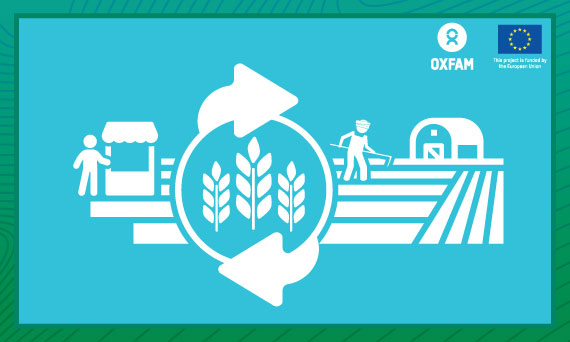The Farmers’ Produce Trade and Commerce (Promotion and Facilitation) Act, 2020
This Act provides a free market for farmers and agricultural traders in the country to buy and sell their produce wherever they want through competitive market prices. It further removes all barriers and restrictions on agricultural trade in the country and brings in facilities for electronic trading of agricultural commodities.
Section 2 enlists key terms of the Act such as ‘electronic trading and transaction platform’, ‘foodstuffs’, ‘inter-state trade’, ‘intra-state trade’, ‘scheduled farmers’ produce’, ‘trade area’ etc. and defines them in the context of this Act.
In this context, ‘trade area’ includes any area in India where trade can be undertaken.
Section 3 says that farmers and traders have their freedom to carry out inter-state and intra-state trade of the produce in a trade area.
Section 4(1) states that traders may engage in inter or intra-state trade with other traders in a trade area
Section 4(2) states that if the need be, central government may bring in systems for electronic registration of traders and payments for farmers.
Section 4(3) states that traders have to make the payments to farmers on the same day of taking delivery of the produce or at the maximum of three days within delivery. However, receipt of delivery mentioning the total amount has to be given to the farmer on the same day of the transaction.
Section 5(1) states that any person having a Permanent Account Number (PAN) can establish electronic platforms for intra-state and inter-state trade of farm produce. Only criteria are that the person who establishes such a platform has to adhere to fair trade practices.
Section 6 states that for any private trade outside the APMCs, state governments cannot levy any kind of tax or cess on the produce under the respective state APMC Acts.
Section 7(1) states that Central Government has the provision to develop a Price Information system for farmers so that they are well aware of the prices in the market.
Section 7(2) states that Central Government has the provision to make private traders engaging in electronic trading to provide details regarding transactions.
Section 8(1) states that in case any dispute arises between the traders and farmers, the parties can seek remedy in front of the Sub-Divisional Magistrate (SDM). The SDM will then refer such disputes to a Conciliation board formed by him to settle such disputes.
However, if the dispute is not resolved with the help of the Conciliation Board, the matter can be brought under the SDM who can then provide measures for settling the dispute. If the parties are not satisfied with the order of the SDM, they may approach an Appellate Authority, generally the District Collector, for settlement of grievances.
Section 9 states that The Agriculture Marketing Adviser, Directorate of Marketing and Inspection, Government of India or an officer of the State Government bestowed with requisite powers, may impose penalty or suspend electronic trading in cases of malpractices in the trading procedure. However, no such order can be passed without giving the trader an opportunity to explain his side.
Section 10 states that any person who is unhappy with such a suspension order as mentioned in the previous section, may appeal against it within sixty days of the order, in front of an officer of the rank of Joint Secretary, appointed by the government for this purpose.
Section 11 states that whoever goes against rules specified in Section 4 are eligible to for a fine not amounting to less than Rs.25000 and that may extend up to 5 lakhs.
Section 12 states that the Central Government has the power to give directions to the state government and other sub-ordinate authorities regarding electronic transactions and trading practices.
Section 13 states that no legal proceedings can be initiated against the Central Government or any State Government regarding any measures undertaken by them under the provisions of this Act.
Section 14 states that this Act has an overriding effect over the provisions of any state APMC Acts.
Section 15 states that no civil court has any jurisdiction to hear disputes arising out of the provisions of the Act.
Section 17 and 18 states that the Central Government has the powers to make new rules under this Act which has to be laid before both houses of the Parliament for approval.
Section 19 states that if any difficulty arises out of implementation of this Act, the Central Government has the power to make new provisions to remove such difficulties. However such provisions have to be put forward before both houses of the Parliament and get it approved.

